Estimate the units needed to measure capacity with an Interactive Measurement Game!
Capacity Measuring Can Be Fun!
Teaching kids to determine the unit needed to measure capacity can be difficult, but you can make it engaging and accessible through hands-on activities and visual aids. The Teach Starter team is here to help with your lesson plans on units of measurement, starting with engaging games and activities to build your student’s knowledge of capacity and liquid measure.
Teaching Students to Determine Which Unit of Capacity to Use
How do you teach beginning students how to determine the unit they should use to measure capacity? Your best bet is to find as many containers as possible and let them ‘dive’ into determining measurement units. Here are a few more ideas for teaching students about capacity measuring units.
- Begin by explaining what capacity means. Use simple terms like “how much something can hold” or “the amount of space inside a container.” Show different containers of various shapes and sizes to illustrate this concept.
- Introduce the idea that capacity can be measured using different units such as millilitres and litres. Show examples of each unit and discuss when each might be used.
- Engage the kids in activities where they compare the capacities of different containers. Provide various containers (cups, bottles, jars) and ask them to arrange them from smallest to largest capacity. You can also try out a digital learning activity to simulate these activities. (and we can help!)
Play Our ‘Which Unit of Capacity?’ Measurement Game
This engaging Google Slides game is the perfect tool for helping your students build background knowledge and practise determining which unit to use when measuring the capacity of different containers.
This activity guides your students through identifying the different measurement units that would be best to use to determine the amount of liquid held by different containers. It references using the following units of capacity – litres and millilitres.
This resource can be used as a whole group activity, allowing for a read-aloud of the questions. However, if you have advanced students, challenge them to independently complete the task.
This downloadable teaching resource is available as an Interactive Google Slides or Powerpoint Activity. To get your new resource, click the dropdown arrow on the download button. If you are using the Google Slides version, you will be prompted to make your own copy. From there, project the slides on your screen and start playing today!
Even More Measurement and Capacity Activities
That’s not all! Make sure you check out the resources below and fill in those lesson plans in a flash!
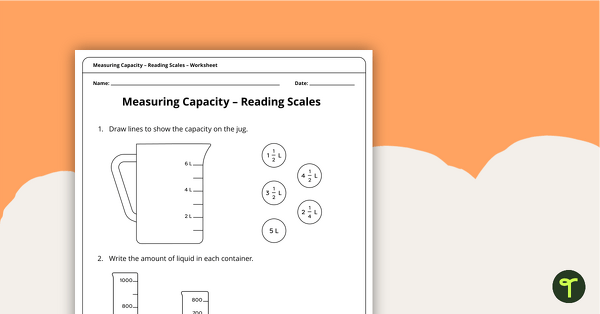
teaching resource
Measuring Capacity – Reading Scales Worksheet
Use this capacity worksheet to give students practice at reading scales on containers to measure capacity.
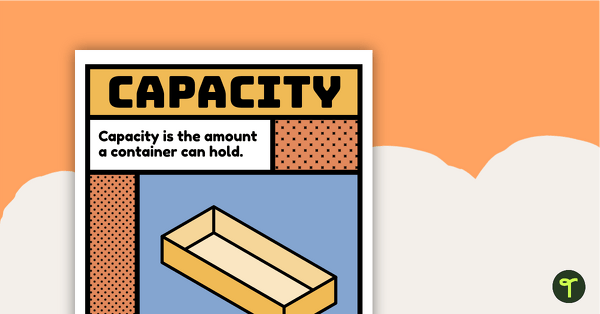
teaching resource
Capacity Vocabulary Poster
A poster that explains the concept of capacity and lists associated vocabulary.
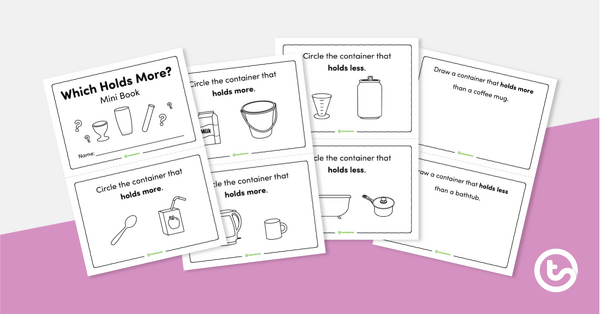
teaching resource
Which Holds More? – Mini Book
A mini book that allows students to compare the capacity of various containers.
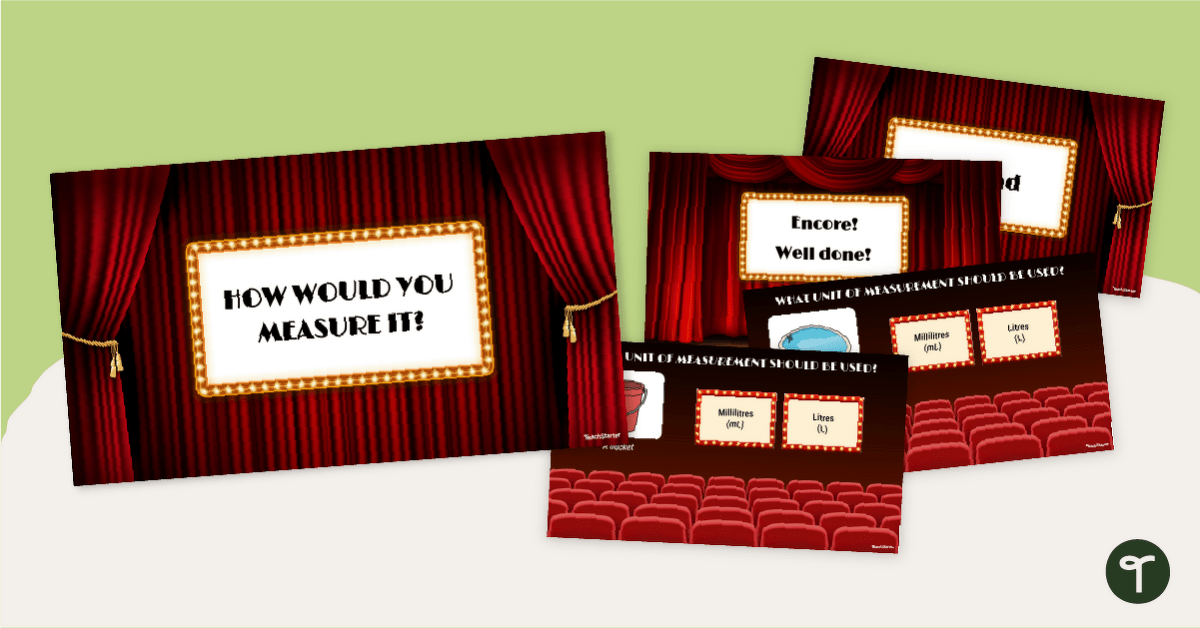

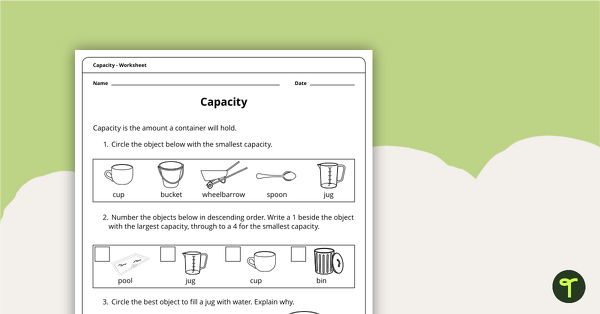
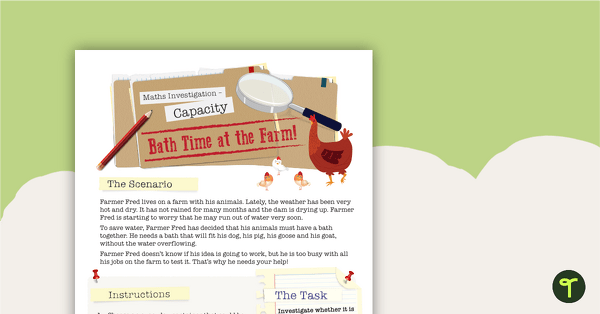
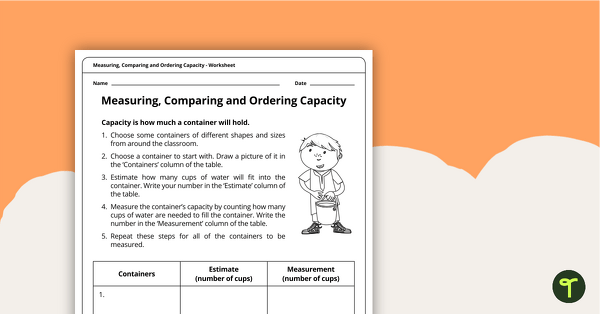
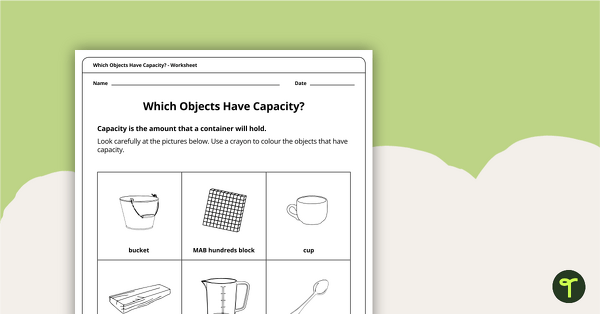
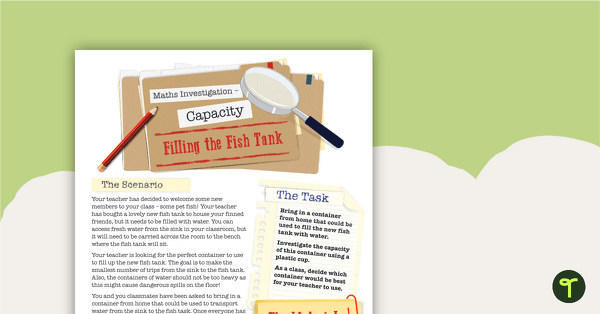
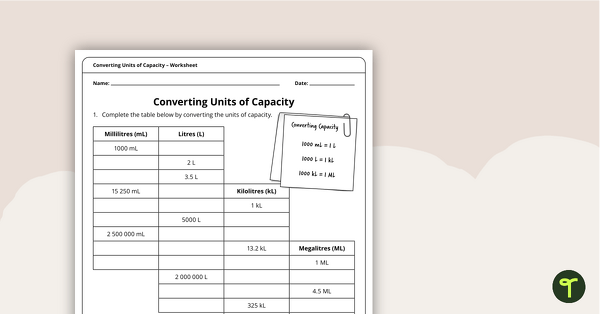
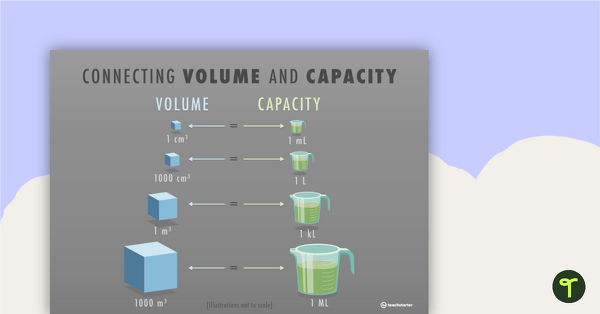
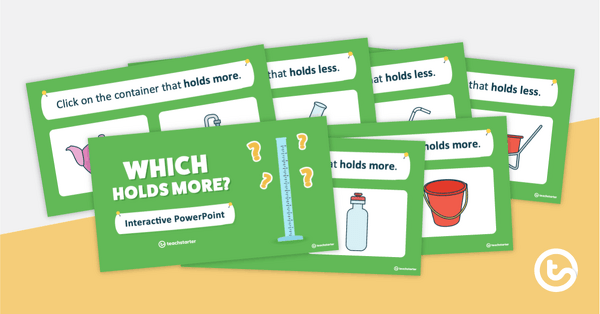
0 Comments
Write a review to help other teachers and parents like yourself. If you'd like to request a change to this resource, or report an error, select the corresponding tab above.